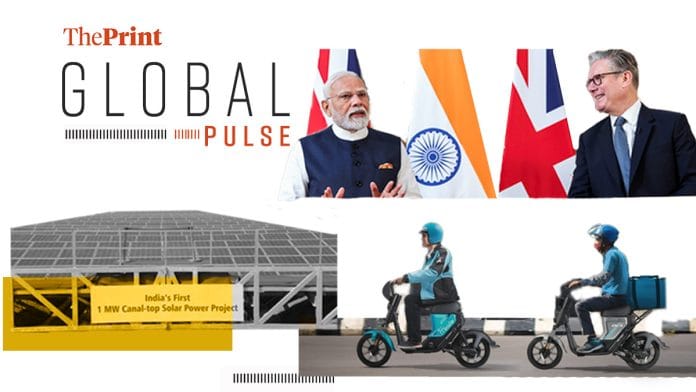New Delhi: India’s electric bike market is growing—this year, the sales of two-wheelers reached 1.2 million units, up 19 percent from the 2024 financial year, reports Chris Kay for the Financial Times.
This phenomenon is underway, as Indian manufacturers themselves—such as Ola and Ather—are weather beaten, reeling from “the abrupt removal of state subsidies, customer scepticism and supply chain pressures”.
“But sales in the South Asian nation are expected to remain far behind China, which is projected to sell about 70 mn units by the same year, supported by widespread adoption of battery swapping, dense charging networks and financial incentives. Only about 6 per cent of India’s scooters and motorbikes are electric,” the report notes.
It is consumers who are riding the wave.
“Price competition remains fierce, with EV models typically costing more than traditional petrol scooters, putting affordability at the heart of the contest,” says the FT. “Still, consumer demand is showing resilience. Agency CareEdge said EV buyers were attracted to the electric bikes because they were cheaper over the long term.”
Moreover, the topsy-turvy state of geopolitics will also impact the market and supply chains need to be resilient. Early this year, China imposed new restrictions on rare-earth materials, key to the manufacturing of electric vehicles.
“We need to ensure that we build a resilient supply chain, given all the geopolitical changes that happen in today’s world,” Sudarshan Venu, managing director of TVS Motor Company, has been quoted as saying. “We are talking to many possible suppliers,” he added.
In the New York Times’ Climate Forward newsletter, Claire Brown writes about India’s “striking growth” in creating renewable energy infrastructure, noting that electricity generated by fossil fuels dropped in 2025.
“Coal fell by 3 percent, and gas fell by 34 percent, the Ember report found. This was due in part to the country’s rapid build-out of wind and solar and in part because of mild weather that resulted in lower demand for air-conditioning,” reads the newsletter.
International Energy Agency Director Fatih Birol referred to India’s “progress” as “very impressive”, driven by government policies, such as support for rooftop solar and quicker permits for hydropower projects, reads the newsletter.
Amid the India-UK trade negotiations—for which Keir Starmer is currently in India—the UK Prime Minister has said that “the UK will not relax trade rules for India”, Alex Forsyth reports for the BBC.
Keir Starmer said that there were “massive opportunities to improve trade and cultural ties with India”, according to the report. “But he said there were no plans to open up more visa routes to Indian workers or students.”
“The issue is not about visas,” Starmer has also been quoted as saying. “It’s about business-to-business engagement and investment and jobs and prosperity coming into the United Kingdom.”
(Edited by Madhurita Goswami)
Also Read: As Starmer begins India trip Wednesday, UK remains hopeful of fighter engine deal






